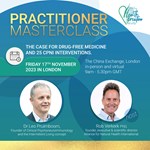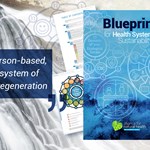-

Speak to your genes in a language they understand
19 February 2020
Our latest video brings to life some modern mimicry to make the most of our stone age genes and restore health and resilience
-

Speak to your genes in a language they understand
Our latest video brings to life some modern mimicry to make the most of our stone age genes and restore health and resilience
-

Create Healthy Babies, Naturally
This course will take participants on a 15-week journey, following chronologically from preconception-care, the gestation period, preparation for birth through hypno-birthing techniques, successful births, and raising newborns to six-months old, through to toddlers.
-

Masterclass with Dr Leo Pruimboom, hosted by Dr Robert Verkerk
We are delighted to announce the recordings from this special one-off event for health professionals and health coaches are now available to buy. Join Dr Leo Pruimboom for a one-off masterclass, hosted by Robert Verkerk PhD. This is a rare opportunity to learn from two of the most visionary thought leaders in the regenerative health field today.
-

Masterclass with Dr Leo Pruimboom, hosted by Dr Robert Verkerk
17 November 2023
We are delighted to announce a very special event for health professionals and health coaches — a unique opportunity to join Dr Leo Pruimboom for a one-off masterclass in Central London. Hosted by Robert Verkerk PhD, this is a rare opportunity to learn and interact with two of the most visionary thought leaders in the regenerative health field today.
-

News Alerts: Week 13, 2018
28 March 2018
CAM trained GPs prescribe fewer antibiotics; Caloric Restriction slows ageing; Epigenetics and breast cancer risk; HPV trilogy “Sacrificial Virgins” wins another award
-

The Regen Health Blueprint Project
Regenerating health & care post pandemic. Find out how an entire nation’s approach to health & care could be made both resilient and sustainable for now and the future based on our UK-tailored blueprint
-

-

Does mould matter?
21 March 2024
We joined Colab Services on 9th March to find out why the answer is a resounding Yes!
-

Want a quick fix for weight loss this January?
12 January 2024
In-house ANH nutrition practitioners, Meleni Aldridge and Melissa Smith, take you on a journey through the options, from gastric bands to semaglutide injections, then showing you why natural approaches targeting metabolic flexibility are best
What's Hot!
Become a Member!
Become an ANH Pathfinder today and help us co-create new health systems that respect nature as well as human rights and freedoms!
YouTube channel
SUBSCRIBE to our YouTube channel to become part of a growing community of Health Creators

